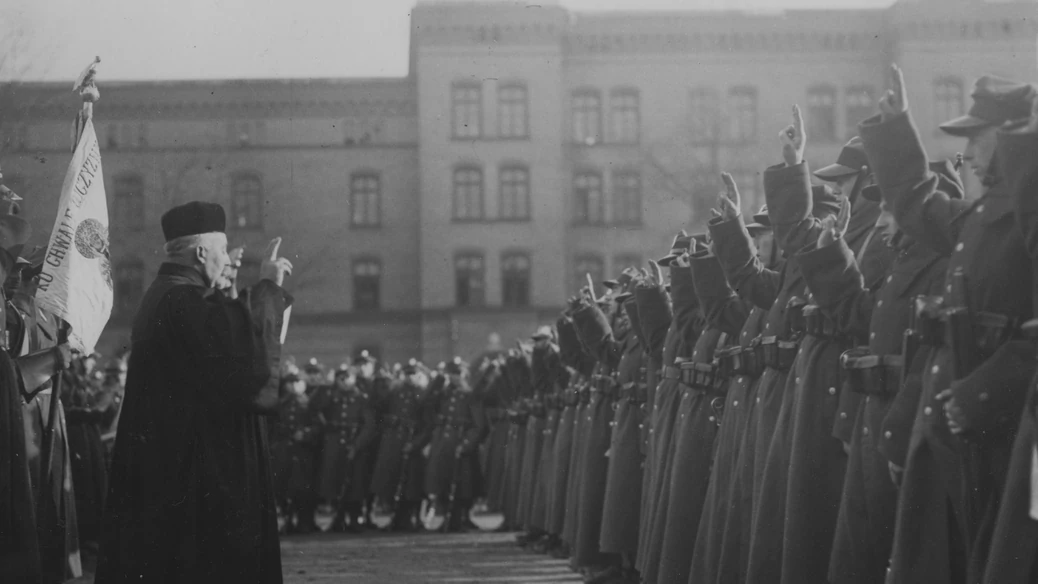In all the most important Polish publications devoted to the issue of Jewish participation in combat during the defensive war of 1939, historians stress that the Jewish soldiers fought unexpectedly well, often displaying self-sacrifice. This impression was retained in the memory not only by the Polish army command, but also by Polish society.
In the interwar period, the percentage of Jews in the Polish Army was not high, and, as researchers point out, did not turn out to be proportional to their overall population in the country. In the Second Polish Republic, the Jewish population constituted about 10% of the population, while after the end of the struggle for the borders, the share of Jewish soldiers in the Polish Army was just over 5% in 1923. Their highest number 6,55% was recorded in 1937. As far as the professional staff is concerned, the number of Jewish officers was distinctly low, amounting to, for example, 0.55% of permanent service officers in 1927.
Conscription to the army was regulated by the Constitution of 17 March 1921, imposing it on all citizens. Detailed provisions on the subject were contained in the Act on Universal Obligation to Military Service of 23 May 1924. Why then, as “dry” statistics would indicate, was not more or less every tenth Polish soldier a person of Jewish nationality? The reasons for this can be considered on many levels – from political to cultural backgrounds, which stemmed from the intricate Polish-Jewish relations that had been shaping for several hundred years.
Despite the various tensions, the fact remained that the character of the Polish Army in the Second Polish Republic was not homogeneously Polish, in the ethnic sense. In 1922, this was confirmed by General Kazimierz Sosnkowski in one of his orders, guaranteeing the state rather than national character of the Polish Army.





